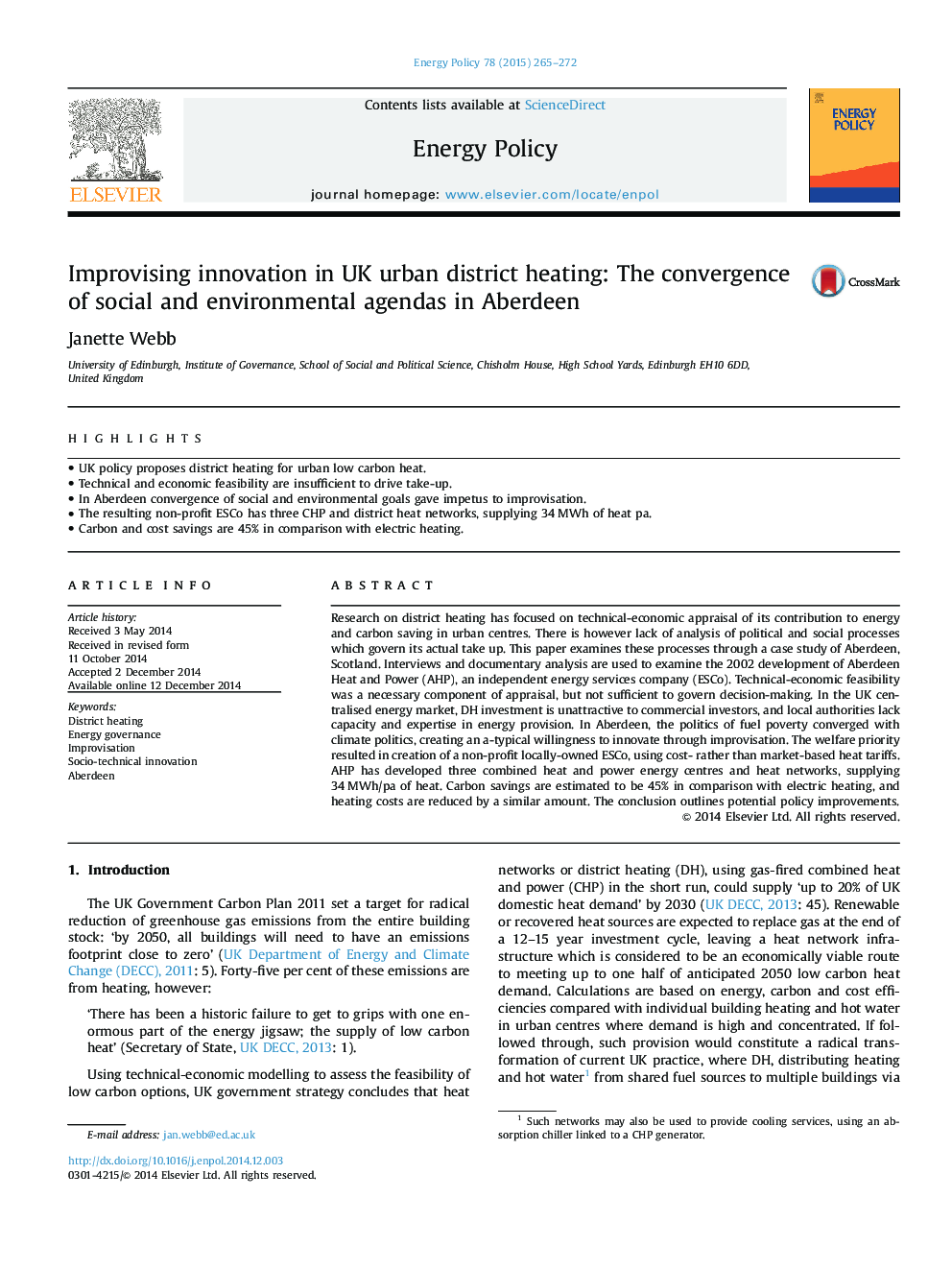| کد مقاله | کد نشریه | سال انتشار | مقاله انگلیسی | نسخه تمام متن |
|---|---|---|---|---|
| 995449 | 1481280 | 2015 | 8 صفحه PDF | دانلود رایگان |
• UK policy proposes district heating for urban low carbon heat.
• Technical and economic feasibility are insufficient to drive take-up.
• In Aberdeen convergence of social and environmental goals gave impetus to improvisation.
• The resulting non-profit ESCo has three CHP and district heat networks, supplying 34 MWh of heat pa.
• Carbon and cost savings are 45% in comparison with electric heating.
Research on district heating has focused on technical-economic appraisal of its contribution to energy and carbon saving in urban centres. There is however lack of analysis of political and social processes which govern its actual take up. This paper examines these processes through a case study of Aberdeen, Scotland. Interviews and documentary analysis are used to examine the 2002 development of Aberdeen Heat and Power (AHP), an independent energy services company (ESCo). Technical-economic feasibility was a necessary component of appraisal, but not sufficient to govern decision-making. In the UK centralised energy market, DH investment is unattractive to commercial investors, and local authorities lack capacity and expertise in energy provision. In Aberdeen, the politics of fuel poverty converged with climate politics, creating an a-typical willingness to innovate through improvisation. The welfare priority resulted in creation of a non-profit locally-owned ESCo, using cost- rather than market-based heat tariffs. AHP has developed three combined heat and power energy centres and heat networks, supplying 34 MWh/pa of heat. Carbon savings are estimated to be 45% in comparison with electric heating, and heating costs are reduced by a similar amount. The conclusion outlines potential policy improvements.
Journal: Energy Policy - Volume 78, March 2015, Pages 265–272
